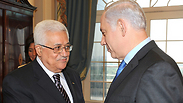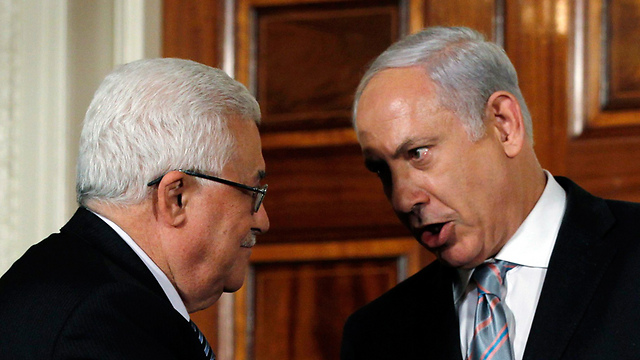
It's time to look beyond the two-state plan
Analysis: The difficulty in solving the Israeli-Palestinian conflict is based on the fact that there has been only one plan on the table for 23 years now, and that plan is not attractive enough for either side.
Indeed, Kerry put more effort into this matter than any of his predecessors, but like his predecessors, he decided to give up about a year ago. Solving the crisis does not only depend, therefore, on hard work.
There have recently been more and more rumors that Russian President Vladimir Putin wants to initiate a meeting between Prime Minister Benjamin Netanyahu and Palestinian President Mahmoud Abbas. Such a meeting is possible of course, as no one would like to offend Putin, but there is no chance for it to set in motion a real process that would end the conflict, unless other ideas apart from the "two-state" solution are raised in this meeting.

The difficulty does not depend on the willingness to work hard, or on the ability to produce summits, but on the fact that there has been only one plan on the table for 23 years now—and that plan is, unfortunately, not attractive enough for either side.
The two-state plan is based on five presumptions: The first, that the solution to the conflict can only be found within the area between the Jordan River and the Mediterranean Sea; the second, that the solution requires the establishment of a new Arab state with the full authorities of a state; the third, that the real Palestinian desire to end the Israeli occupation is not identical to the Palestinians' aspiration to establish an independent state—which is not real; the fourth, that Gaza and the West Bank must be part of one diplomatic entity, as opposed to the de facto situation today; and the fifth, that all moderate Arab states are very interested in this sole solution, and will therefore help advance it.
If there is an international element—be it Putin or perhaps the next American administration—that really wants to advance a solution to the conflict, it should ignore the mistaken presumptions we have been relying on for so long and try to analyze the entire range of alternatives. The international initiative to reexamine the way to solve the conflict is crucial. There is no chance that an Israeli initiative, as creative as it may be, could serve as the basis for any discussion.
The important thing in international relations is not the content of the package, but its packaging, and the most important part in the packaging is the identity of the packer—in other words, whoever initiated the plan. The more important he is, on the one hand, and the more he is perceived as supporting the other side's stands on the other hand, it will be easier for the other side to seriously consider the initiative.
In this sense, Russian involvement could possibly be a refreshing novelty, as long as the Russians don’t enter the trap the Americans fell into and try to force both sides to agree to the "two-state" plan. Even if the Palestinians agree to hold the meeting without preconditions, and even if the sides agree to launch negotiations based on the two-state outline, the process will just end with another bitter disappointment, or worse—a third intifada.
Albert Einstein asserted a long time ago that insanity is "doing the same thing over and over again and expecting different results"—and the time has come to think about other solutions.
Major-General (res.) Giora Eiland is a former head of Israel's National Security Council.










